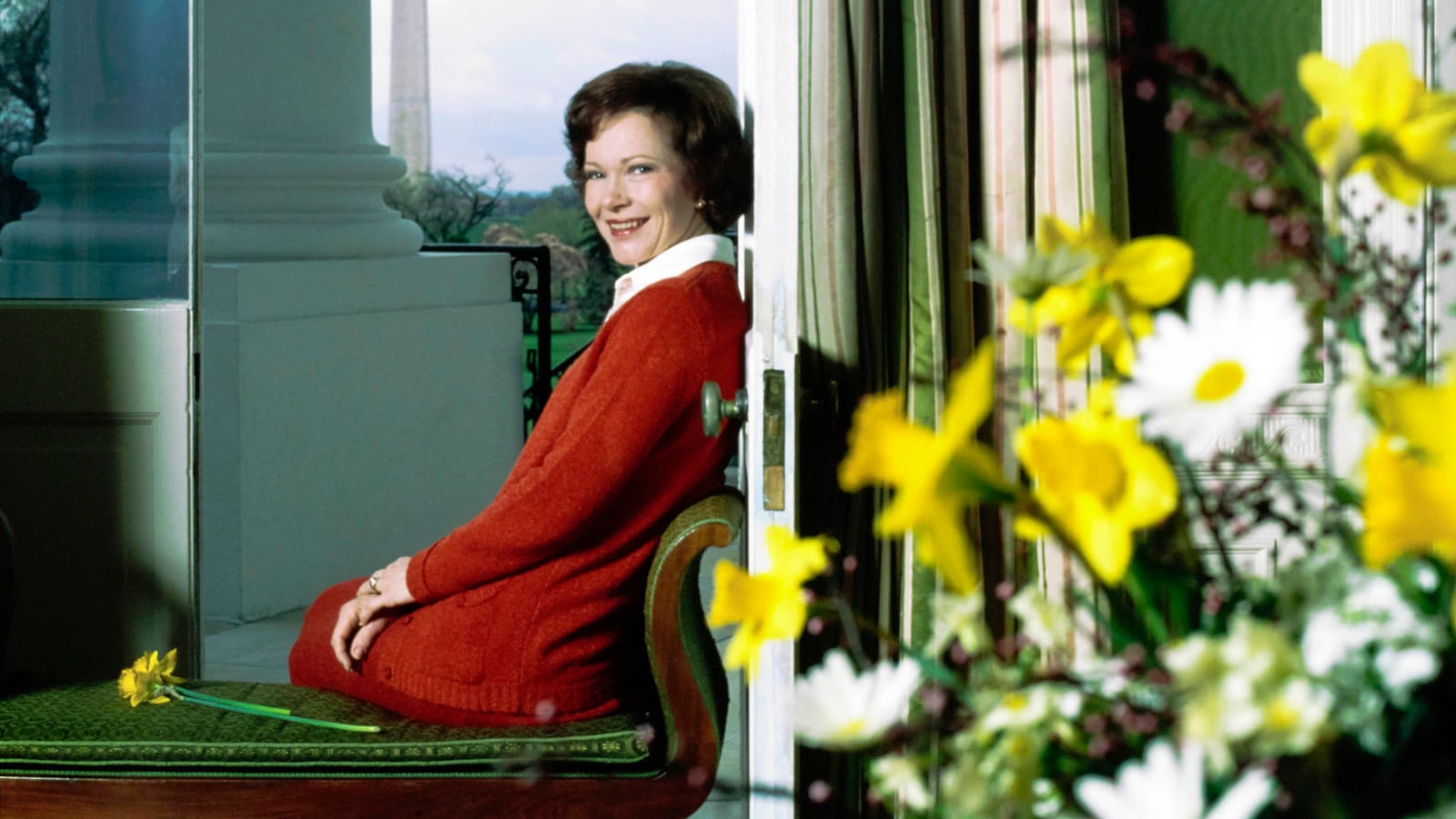Today, it’s hard to believe the uproar that erupted when first lady Rosalynn Carter, who died on Sunday at the age of 96, traveled to Latin America to represent her husband in June 1977. There were cries of “Who elected her?” and doubts about whether a simple farmer’s wife from Plains, Georgia who didn’t graduate from college had the credentials to undertake such a mission. Newsweek was polling on the propriety of the first lady’s trip, and we were going to feature Rosalynn on the cover. I was in the White House press room when Jody Powell, President Jimmy Carter’s press secretary, sought me out and said softly so other reporters didn’t hear, “The president wants to see you.”
I had covered the Carter campaign for Newsweek, but I was new to the White House beat. I thought, OK, this must be how it works. For the record, that’s the first and last time I was summoned to see a president on a moment’s notice. As Powell ushered me into the Oval Office, Carter greeted me with his trademark smile, saying, “You’ve come to talk about my Eleanor.”
The obvious allusion I thought was to Eleanor Roosevelt, who had traveled the country and the world as FDR’s eyes and ears, the enduring model of an activist first lady. But Carter was also speaking directly about his wife; unbeknownst to me at the time, Mrs. Carter and I share the same name. I only realized this years later when I visited the First Ladies Museum in Canton, Ohio, where the nameplate beneath her portrait reads Eleanor Rosalynn.
President Carter in that long-ago interview stressed that he and Rosalynn were equal partners, going back to the family peanut business she helped him run and continuing into their political life together. On his Inauguration Day in 1977, they walked hand in hand along Pennsylvania Avenue, winning praise for their lack of pretension. At the formal festivities that evening, Rosalynn wore the same gown as six years earlier when her husband was inaugurated governor.
She really was the first thoroughly modern first lady, although she is not remembered that way. She sat in on cabinet meetings at her husband’s urging, taking a place along the wall with other staffers. She didn’t say anything, but even so, not everyone welcomed her presence.
Her interest in mental-health issues pitted her against the secretary of health, education, and welfare, Joseph Califano, a skilled lawyer and Washington power player who had held several top positions in the Johnson administration. Rosalynn didn’t think he pressed hard enough to accommodate the recommendations of the President’s Commission on Mental Health, which President Carter had established during his first month in office. Califano was the first to go when President Carter reshuffled his cabinet in the summer of 1979.
Rosalynn was far more assertive in promoting her husband’s policies and priorities than her public presence led people to believe. She spoke with a soft Southern accent, which belied the intensity of purpose she shared with her husband. People underestimated her at their peril: She tended to take the normal slings and arrows of politics more personally than her husband.
The journey from Plains to the White House was not an easy one. In her 1984 memoir, she wrote about working to overcome the crippling nervousness she felt when she had to speak in public, an occupational hazard for the wife of a politician. She would lock herself in the bathroom and repeat over and over the few lines she willed herself to say. Practice eventually made her proficient, and in the years since leaving the White House, she lived as public a life as her husband. She promoted mental-health causes and founded the Rosalynn Carter Institute for Caregiving at Georgia Southwestern State University, her alma mater.
The 1980 election loss to Ronald Reagan hit both Carters hard. Asked what she thought accounted for Reagan’s landslide victory, Rosalynn said, “I think he makes us comfortable with our prejudices.” Reagan had kicked off his campaign with a speech at the Neshoba County Fair in Philadelphia, Miss., where three civil-rights workers had been murdered in 1964.
For many, her comment would be prescient, foreshadowing an administration that would turn the clock back on much of what she and her husband tried to do, and make it all seem glamorous in a way the plain-spoken Carters never could.





